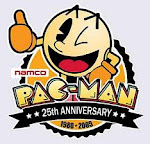 The Grand Hotel, Brighton, after the IRA bomb explosion on October 12, 1984.
The Grand Hotel, Brighton, after the IRA bomb explosion on October 12, 1984.Margaret Thatcher...
Does the name make you smile? Or does it make you boo and hiss? This UK Prime Minister enjoyed three successive general election victories, in 1979, 1983 and 1987... and has become one of the ultimate 1980s icons.
It pleases modern day journalists to speak of the "Thatcher revolution", but without the election of Ronald Reagan as American President in 1980, the decade may have turned out very differently indeed. After all, America's influence on the world economy cannot be doubted, and it was in America, after Reagan's first term began, that the acronym "yuppie" was coined.
But, with the stage set just right for her, Margaret Thatcher, like the mid-to-late decade, boomed.
The '80s boom had not really got into its stride in 1984. OK, there was no mistaking it for 1980, 1981, 1982 or even 1983, but we still had a little way to go.
Despite the external factors influencing the 1980s, there is no doubt that here in the UK Margaret Thatcher wrought absolutely huge changes.
And, standing alongside Ronald Reagan, was a powerful presence on the world stage.
But everything may have ended very differently in the early hours of 12 October 1984.
The Grand Hotel had been booked for the annual Conservative Party conference. When the bomb detonated at 2.54 am, Margaret Thatcher was still up, working on her speech.
She escaped unscathed. Five people died, and thirty-four others, including Norman Tebbit, then President of the Board of Trade, and his wife, Margaret, were injured.
Whatever one thinks of Margaret Thatcher's politics, it's hard to deny her courage. She insisted that the conference began as planned at 9.30am, and declared:
"This attack has failed. All attempts to destroy democracy by terrorism will fail."
 In August 1986, Margaret Thatcher and Norman Tebbit returned to The Grand Hotel...
In August 1986, Margaret Thatcher and Norman Tebbit returned to The Grand Hotel...From the Sun, August 29, 1986:
Brave Maggie Thatcher returned in triumph yesterday to the hotel where she cheated an assassination squad of IRA bombers.
The Premier spent an hour at the refurbished Grand Hotel in Brighton where, two years ago, she missed death by inches as a massive blast brought down the ceiling in her bathroom.
As she inspected the plush new frontage of the building where five people died and thirty were injured, Mrs Thatcher said: "It's almost as though it had not happened."
She handed back the union jack which was flying over the Grand on the night the bombers tried to wipe out the British Cabinet, gathered for the Tory Party conference.
The flag had been given to Mrs Thatcher by tearful hotel staff as they picked their way through the rubble.
She returned it to general manager Richard Baker and told him: "We've taken very good of the flag. I hope it's been ironed."
Iron man Norman Tebbit, whose wife Margaret was crippled for life in the blast, joined Mrs Thatcher for the emotional return to Brighton.
Mr Tebbit, who was trapped in agony for hours in the debris, bravely joked: "I remember my last night here, room service was a bit slow. I had to wait for three and a half hours before anyone came for me."
Then he added sombrely: "Of course there are sad memories, but I like to look ahead and not backwards. I am sure even those who lost their lives would not have wanted a wake."
Massive security was mounted for the visit, with 1,000 police on duty and armed detectives in hotel uniforms.
All these years on, Margaret Thatcher remains a controversial figure in the UK.
There are those out there who believe she was our saviour, others who swear blind that she is responsible for most things wrong in the UK today.
The political scene of the 1980s seems to arouse much more interest and passion than the political scene of today.













6 comments:
"The kind people
have a wonderful dream
Margaret on the guillotine
because people like you
make me feel so tired
when will you die?
when will you die?
when will you die?
when will you die?
when will you die?
because people like you
make me feel so old inside
please die
and kind people
do not shelter this dream
make it real
make the dream real
make the dream real
...make it real"
...how soon is NOW?
Wow Margaret Thatcher was brave..
Some good points you make...good to see a little bit about her positive side just for a moment..
I think our modern day politicians get too easy a ride because people find it much easier to revile Thatcher and/or the 1980s than keep an eye on the present bunch. And speaking as a resedential social worker, I must say the cutbacks and marketisation of care services in England (Scotland and Wales are devolved and receive higher funding) under New Labour were far worse than anything under Thatcher. And nobody made a murmur of protest.
The '80s were hair raising times... riots, a man on the Queen's bed, Chernobyl, the Brighton bomb, Lockerbie, the Herald Of Free Enterprise, huge unemployment, The Falklands, The King's Cross Fire...
And yet they were also good times - Live Aid, increasing environmental awareness, early computing, the Berlin Wall coming down, lovely fads and TV, fashions that now make us smile.
Well done for revealing so many facets of this complicated decade on your blog.
Thatcher really was a horrible old cow.
I liked her
Post a Comment